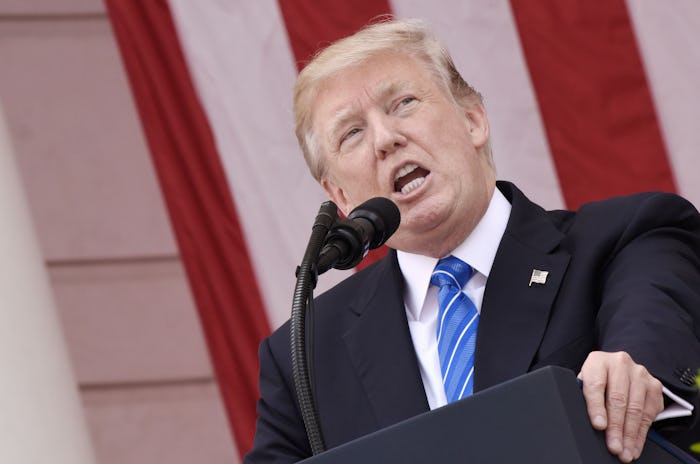News

U.S. Is One Of 3 Countries Not In The Paris Deal
On Thursday, President Donald Trump announced that the United States will pull out of the Paris Agreement on climate change. Trump's decision to abandon the deal accomplishes a major campaign goal to loosen regulations put in place to protect the environment. But which countries are a part of the Paris Agreement? Now, all but three.
Prior to the United States backing out of the deal, Nicaragua and Syria were the only nations not to sign the Paris Agreement in the first place. The global accord, which was signed by 195 countries including the United States, was adopted in December 2015 and put into place nearly a year later. As of April this year, 147 nations have ratified the Paris climate deal.
According to Democracy Now!, Paul Qquist, Nicaragua's lead envoy, explained in 2015 that the Central American country would not join the climate accord because "the concept of universal responsibility and voluntary commitments doesn't work." He continued,
[T]he [Paris Agreement] is a spin on historical responsibility, because everyone didn’t create this problem. ... Do we feel responsible for having caused climate change? No, not at all. Are we doing something about it? Yes, we’ve gone from 25 percent renewable to 52 percent renewable since 2007, and in 2020 we’ll be 90 percent renewable.
Syria failed to signed the Paris Agreement for a far different reason. According to the Washington Post, the Syrian government "was in no position to commit to limiting" the country's greenhouse emissions. That's because, at the time the Paris climate deal was in negotiations, the country was experiencing some of the heaviest conflict in its seven-year civil war, the Post reported.
Trump, on the other hand, is more worried about money and reputation. According to CNN, the president claimed Thursday that the Paris Agreement "is less about the climate and more about other countries gaining a financial advantage over the United States." He called the accord "a bad deal" that takes jobs away from Americans, but also said he would reconsider joining if he could renegotiate a better deal.
Without a sense of irony, Trump said during his announcement, according to CNN:
As someone who cares deeply about our environment, I cannot in good conscience support a deal which punishes the United States. The Paris accord is very unfair at the highest level to the United States.
But his move may be counterintuitive. United Nations Secretary-General António Guterres said earlier this week that if the United States pulled out of the Paris Agreement, it would negatively impact America's global influence, CNN reported. Guterres also claimed that the United States' absence leaves room for China to take over as a global forerunner in the climate change fight.
The United States won't officially withdraw from the Paris Agreement until November 2020, when Trump is up for reelection, CNN reported. But Trump said the country would no longer abide by the "nonbinding Paris accord."
Trump claims that rejecting the Paris climate accord is to the benefit of the American people. But what kind of country will Americans inherit if the administration fails to protect it?